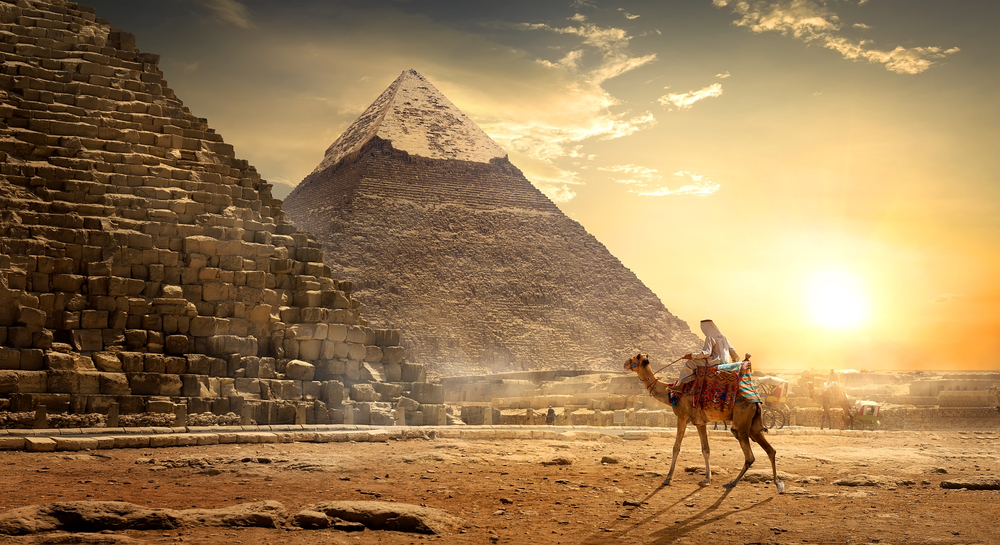Is It Okay to Be Patriotic about the Pyramids?
Answered by Shaykh Farid Dingle and Shaykh Irshaad Sedick
Question
As an Egyptian, should I be patriotic about the pyramids given that they were built by pagans and tyrants?
Answer
Dear questioner,
Thank you for your important question.
Reflecting on History
Studying and reflecting on the past is very important in Islam. Ibn Khaldun said, “History makes us acquainted with the conditions of past nations as they are reflected in their national character. It makes us acquainted with the biographies of the prophets and the dynasties and policies of rulers. Whoever so desires may thus achieve the useful result of being able to imitate historical examples in religious and worldly matters … The past resembles the future more than one drop of water another.“ [Ibn Khaldun, The Muqaddimah (tr. Franz Rosenthal)]
For a Muslim, ancient civilizations are a means of admonition and reflection. Allah Most High says, “Have they not traveled through the land and seen how their predecessors met their end? They were mightier than them: they cultivated the earth more and built more upon it. Their own messengers also came to them with clear signs: God did not wrong them; they wronged themselves.” [Quran, 30:9]
So looking into history, studying the past, learning about how previous peoples lived, what they built and achieved, etc. are all part of the way a Muslim looks at everything with insight and draws lessons from his environment.
Relating Everything back to Allah and the Hereafter
When the Companions were passing through the lands of Thamud on the Battle of Tabuk, the Messenger of Allah (peace and blessings be upon him) said, “Only pass by these people who are being punished while you are crying. If you cannot cry, then don’t go to where [they were punished] lest you receive the punishment that they received.” [Bukhari and Muslim]
They were instructed to reflect deeply on what wrongs they did and what that meant to their own relationship with Allah Most High. Thus these symbols serve some purpose albeit not in a purely worldly manner.
True Patriotism
Being patriotic as a Muslim means that you show loyalty to your country and give back to it what it needs. Usually, that means trying to spread Islam there, helping people in their faith, or being proactive in that which benefits the country in a general sense.
As for being proud of one’s country’s history, that doesn’t really hold priority for Muslims, but we can take an admonition from the likes of the pyramids, the Roman roads and citadels, Greek art, and Aztec architecture, but one must practice caution when celebrating something with controversial origins or something that has no spiritual significance.
Summary
As Muslims, we should reflect on the past, take the lessons and educate ourselves about history, but not get stuck there. Muslims should always practice caution so as to not end up revering acts and symbols based on disbelief. General admiration of worldly achievements within balanced limits is acceptable, and Allah knows best.
I pray this helps.
[Shaykh] Farid Dingle and
[Shaykh] Irshaad Sedick
Checked and Approved by Shaykh Faraz Rabbani
Ustadh Farid Dingle has completed extensive years of study in the sciences of the Arabic language and the various Islamic Sciences. During his studies, he also earned a CIFE Certificate in Islamic Finance. Over the years he has developed a masterful ability to craft lessons that help non-Arabic speakers gain a deep understanding of the language. He currently teaches courses in the Arabic Language
Shaykh Irshaad Sedick was raised in South Africa in a traditional Muslim family. He graduated from Dar al-Ulum al-Arabiyyah al-Islamiyyah in Strand, Western Cape, under the guidance of the late world-renowned scholar, Shaykh Taha Karaan.
Shaykh Irshaad received Ijaza from many luminaries of the Islamic world, including Shaykh Taha Karaan, Mawlana Yusuf Karaan, and Mawlana Abdul Hafeez Makki, among others.
He is the author of the text “The Musnad of Ahmad ibn Hanbal: A Hujjah or not?” He has served as the Director of the Discover Islam Centre and Al Jeem Foundation. For the last five years till present, he has served as the Khatib of Masjid Ar-Rashideen, Mowbray, Cape Town.
Shaykh Irshaad has thirteen years of teaching experience at some of the leading Islamic institutes in Cape Town). He is currently building an Islamic online learning and media platform called ‘Isnad Academy’ and pursuing his Master’s degree in the study of Islam at the University of Johannesburg. He has a keen interest in healthy living and fitness.
